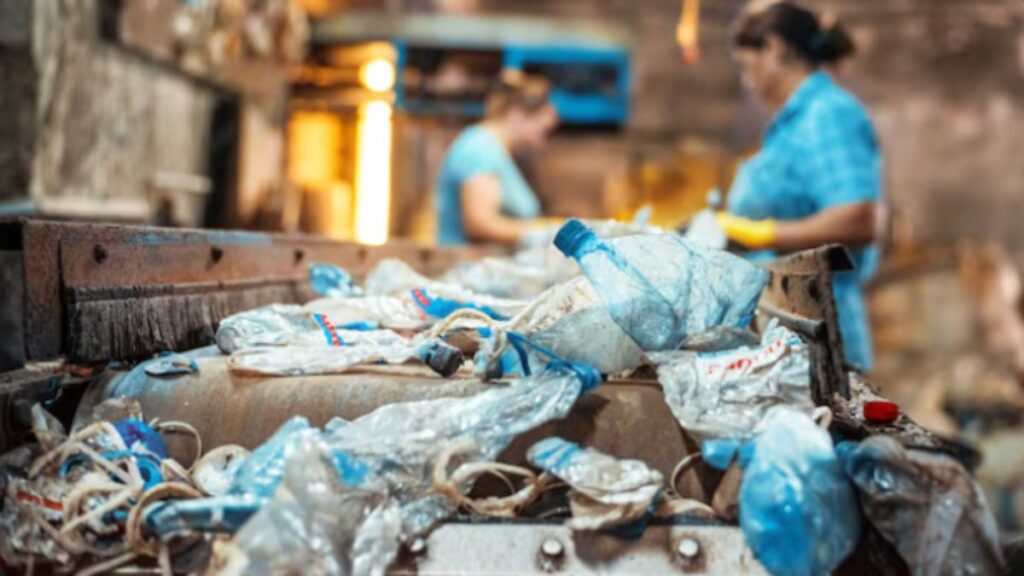Introduction: The Global Waste Crisis
Every day, humanity produces over 2 billion tons of solid waste, and this number is projected to grow by 70% by 2050, according to the World Bank. Landfills are overflowing, oceans are choking with plastic, and the recycling systems in many parts of the world are either outdated or inefficient. Despite growing awareness of sustainability and environmental preservation, the infrastructure supporting waste management has not evolved at the same pace as the waste itself.
This is where MataRecycler steps in — an innovative force at the intersection of technology, sustainability, and circular economy thinking. By combining smart technologies such as AI-driven sorting, IoT-enabled collection systems, and blockchain-based material tracking, MataRecycler aims to redefine how the world views and manages waste.
In essence, MataRecycler is not just a recycling company — it’s a tech-driven sustainability movement built to empower individuals, communities, and industries to close the loop between waste creation and resource recovery.
The Problem: Outdated Recycling Systems and Human Behavior
Traditional recycling systems rely heavily on manual sorting and consumer discipline, both of which present challenges. Many people still struggle to properly separate recyclable from non-recyclable waste. Even when they do, contaminated materials often end up in landfills due to the limitations of existing sorting technologies.
Key Challenges in Today’s Recycling Landscape
-
Inefficient Sorting Processes
Most recycling facilities rely on mechanical sorting, which struggles to identify and separate mixed materials effectively. This leads to lower recycling rates and higher contamination levels. -
Low Consumer Engagement
People often don’t understand what can be recycled or lack motivation to do so. Without incentives or feedback, recycling feels like an invisible act with no tangible impact. -
Lack of Transparency
Even when materials are recycled, the process is often opaque. Consumers rarely know where their waste goes or how it’s transformed — reducing trust in recycling systems. -
Rising Costs of Waste Management
The cost of waste collection, transportation, and processing continues to rise, while the global prices of recycled materials fluctuate, making recycling economically unstable in some regions.
MataRecycler was born out of a recognition that these problems require a systems-level rethink, not just small improvements.
The MataRecycler Vision: A Circular Future
MataRecycler envisions a world where waste is no longer waste, but a valuable resource continuously reintroduced into the production cycle. The company’s core philosophy is grounded in the circular economy model, which focuses on keeping materials in use for as long as possible, extracting their maximum value before safely returning them to nature or reusing them in new forms.
Mission Statement
To leverage smart technologies that optimize recycling processes, increase material recovery, and empower people to participate meaningfully in waste reduction.
Core Values
-
Innovation – Driving sustainability through technology.
-
Transparency – Creating traceable recycling systems.
-
Collaboration – Working with governments, businesses, and citizens alike.
-
Sustainability – Prioritizing long-term ecological and social impact.
-
Accountability – Ensuring every step in the recycling chain is verifiable and responsible.
The Technology Behind MataRecycler
The backbone of MataRecycler’s approach is its integration of digital technology with environmental engineering. Let’s explore how it works.
1. AI-Powered Sorting
MataRecycler employs computer vision and machine learning algorithms to automatically recognize and sort waste materials at unprecedented speed and accuracy.
-
Cameras and sensors analyze items on conveyor belts.
-
AI identifies material types — plastic, metal, paper, glass — and even differentiates between recyclable and contaminated items.
-
Robotic arms or air jets separate the items with precision.
This system dramatically reduces human error, boosts processing efficiency, and ensures that a higher percentage of collected materials are successfully recycled.
2. IoT-Enabled Collection Systems
Smart bins equipped with Internet of Things (IoT) sensors monitor fill levels, waste composition, and collection schedules in real time.
-
These bins send data to a central dashboard, allowing municipalities or private operators to optimize pickup routes and reduce fuel consumption.
-
Users can also access mobile apps to track their recycling contributions, gamify their efforts, and even earn rewards.
3. Blockchain for Transparency
MataRecycler uses blockchain technology to record each step of the recycling journey — from collection to processing to material reuse.
This creates an immutable record of every transaction, enabling full transparency.
-
Manufacturers can verify the source of recycled materials.
-
Consumers can trace the lifecycle of the products they recycle.
-
Governments can monitor compliance with sustainability regulations.
The blockchain layer transforms waste management into a trust-based ecosystem — something the global recycling industry has long needed.
4. Data Analytics for Smarter Decisions
By analyzing large datasets from waste collection, sorting, and recycling plants, MataRecycler provides data-driven insights to improve operational efficiency.
For instance, predictive analytics can forecast waste generation trends in specific neighborhoods or seasons, helping cities plan infrastructure more effectively.
MataRecycler in Action: Real-World Applications
1. Smart Cities Integration
MataRecycler collaborates with urban sustainability initiatives to make cities smarter and cleaner.
-
Smart waste bins installed across public spaces reduce overflow and littering.
-
Digital dashboards help city administrators monitor waste metrics in real time.
-
Citizens receive personalized feedback on their recycling habits via mobile apps.
These features turn recycling into a visible, rewarding, and trackable part of daily urban life.
2. Corporate Partnerships
Large corporations are under increasing pressure to meet ESG (Environmental, Social, and Governance) goals.
MataRecycler offers a B2B recycling platform that helps companies manage internal waste, verify recycling rates, and report sustainability data to stakeholders.
Through blockchain-based verification, businesses can ensure that their waste is being handled responsibly and transparently — reducing greenwashing and strengthening consumer trust.
3. Educational Programs
MataRecycler believes that technology alone isn’t enough. Behavior change is equally important.
The company partners with schools, universities, and NGOs to launch environmental education programs, teaching the next generation how smart recycling can make a tangible difference.
Interactive mobile apps, AR-based learning experiences, and reward systems make recycling fun and accessible for young audiences.
Benefits of the MataRecycler Approach
1. Efficiency and Cost Savings
By automating sorting and optimizing logistics, MataRecycler helps reduce operational costs by up to 30–40% for municipalities and private operators.
2. Higher Recycling Rates
AI-driven systems can identify up to 99% of recyclable materials correctly, compared to the 70–80% accuracy of traditional methods.
3. Carbon Reduction
Optimized collection routes and reduced landfill dependency contribute significantly to lower greenhouse gas emissions.
4. Consumer Empowerment
Through real-time tracking, rewards, and gamification, MataRecycler transforms recycling into a motivating and measurable activity rather than a mundane chore.
5. Transparency and Accountability
The blockchain infrastructure ensures that every actor in the recycling chain — from collector to recycler to manufacturer — is accountable and verifiable.
Challenges and Opportunities
No technological solution is without its challenges, and MataRecycler faces several as it scales globally.
Challenges
-
Infrastructure Compatibility – Integrating smart systems with old municipal setups can be complex.
-
Initial Costs – AI and IoT systems require upfront investment, though they pay off long-term.
-
Public Awareness – Changing recycling behavior takes time and consistent education.
-
Data Privacy Concerns – Blockchain and IoT data must be securely managed to maintain trust.
Opportunities
-
Government Collaboration – As nations introduce stricter recycling mandates, demand for smart solutions will rise.
-
Corporate ESG Reporting – MataRecycler can become an indispensable tool for companies aiming to prove sustainability compliance.
-
Circular Supply Chains – With data on material lifecycles, industries can redesign production processes to use more recycled inputs.
-
Global Expansion – Emerging economies, facing rapid urbanization, present vast opportunities for smart waste management adoption.
Case Study: A City Transformed
In 2024, MataRecycler partnered with a mid-sized European city (fictionally named Greenhaven) to pilot its full suite of technologies.
Before implementation, Greenhaven’s recycling rate was just 32%, and landfill costs were increasing annually.
After integrating MataRecycler systems:
-
Recycling rates increased to 68% within one year.
-
Collection costs dropped by 25%.
-
Residents received digital rewards redeemable at local businesses for consistent recycling.
-
The city’s CO₂ emissions from waste logistics dropped by 18%.
Greenhaven’s success story sparked interest from neighboring cities, proving that smart recycling can deliver measurable environmental and economic benefits.
The Future: Scaling Sustainability
MataRecycler’s long-term goal is to create a global network of interconnected recycling ecosystems — where data, technology, and human participation work in harmony.
Upcoming Innovations
-
AI Predictive Waste Modeling – Using urban data to anticipate and manage waste surges (e.g., during festivals or holidays).
-
Smart Recycling Robots – Compact, affordable robots for home and office use to sort waste before disposal.
-
Global Circular Marketplace – A blockchain-based trading platform for recycled materials, connecting producers and manufacturers directly.
These initiatives could reshape global supply chains and make recycling not only environmentally essential but economically lucrative.
Conclusion: A Smarter, Cleaner Tomorrow
The journey toward a sustainable planet demands innovation, collaboration, and accountability. MataRecycler embodies all three.
By merging cutting-edge technology with environmental ethics, it addresses one of humanity’s most pressing challenges: waste.
In a world drowning in garbage, MataRecycler offers a blueprint for hope — where waste becomes a resource, transparency becomes the norm, and sustainability becomes second nature.



